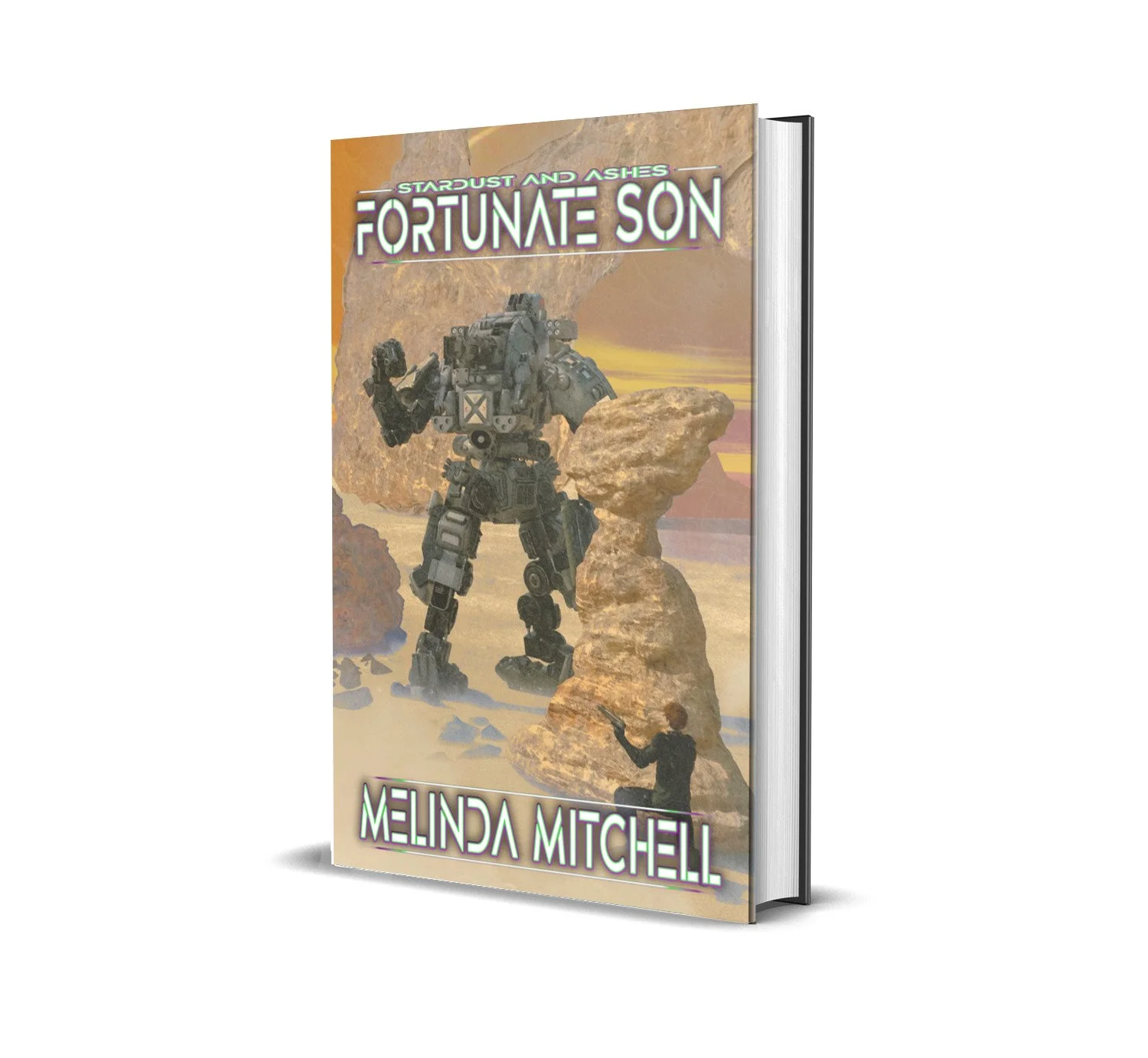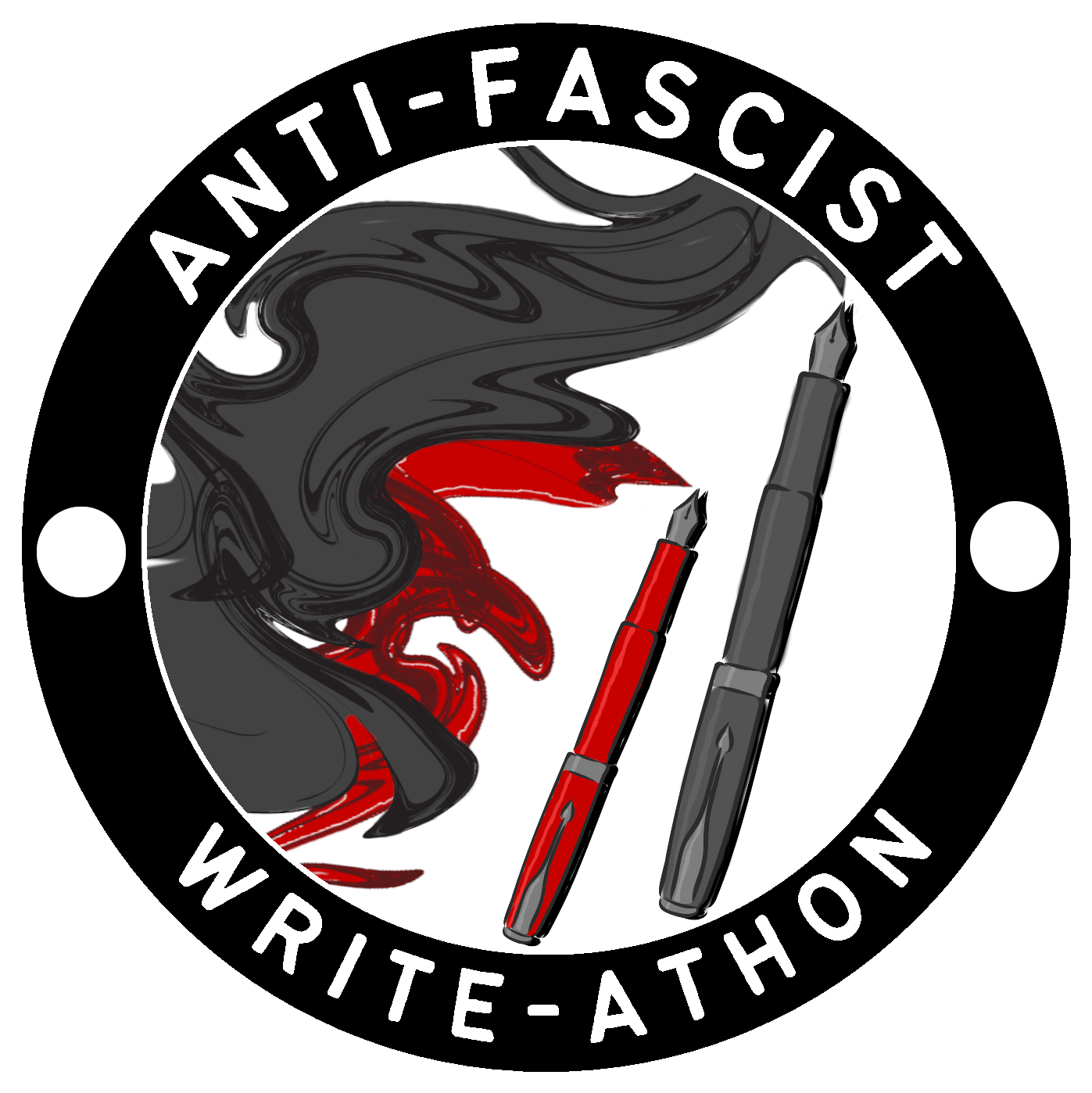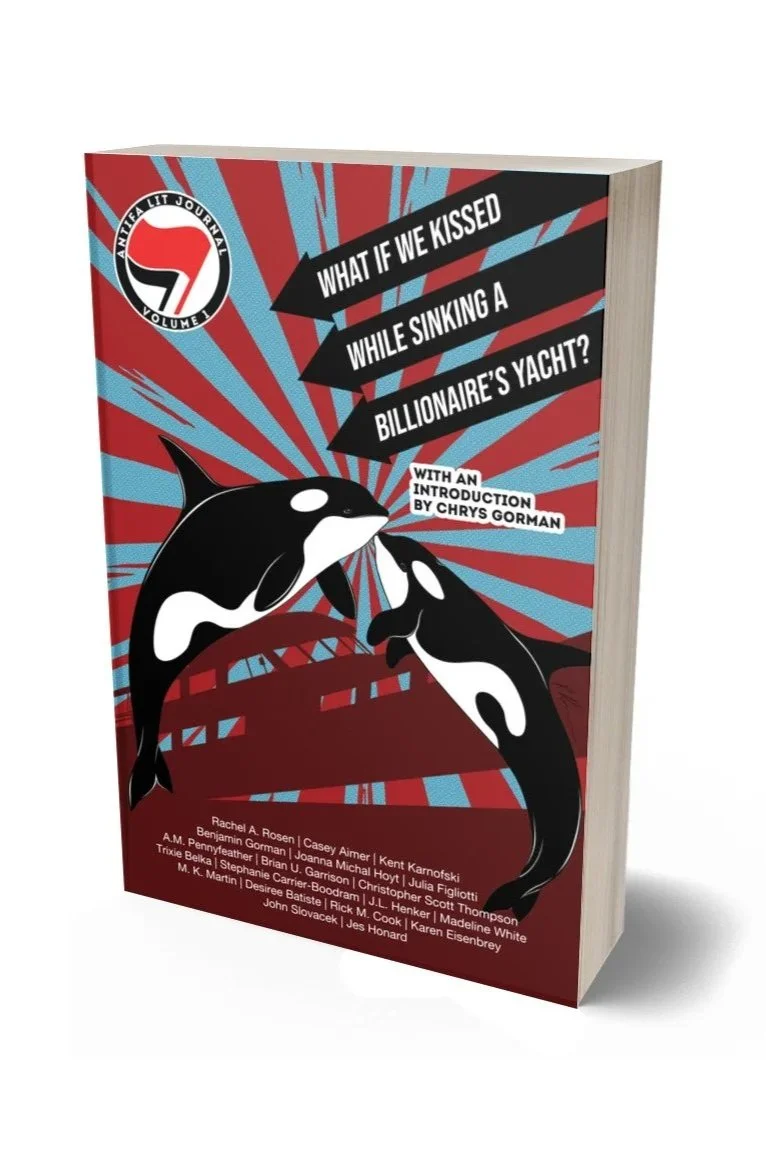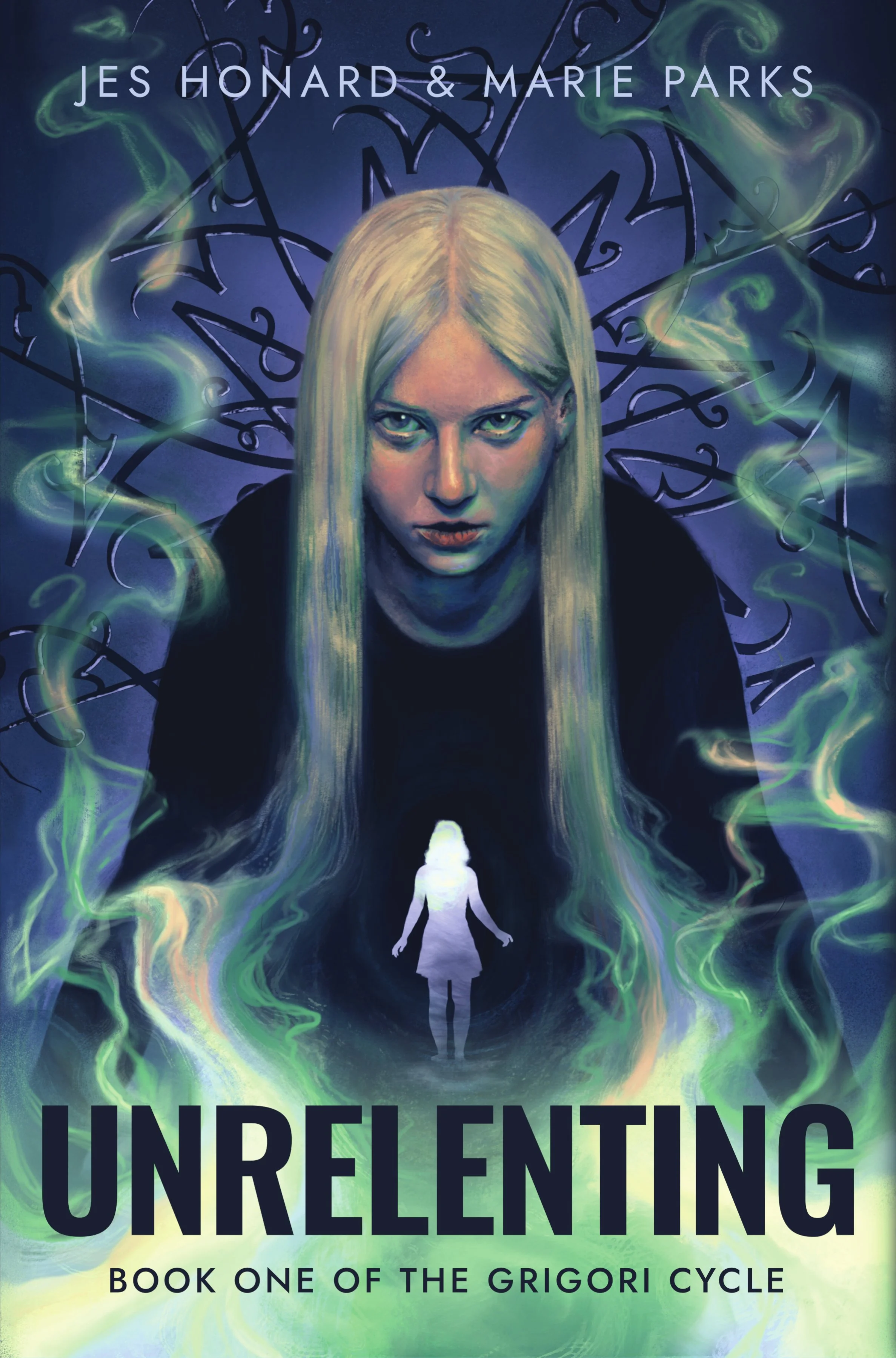I recently received a thoughtful, considered letter from an author who was concerned about working with Not a Pipe Publishing (and its forthcoming subsidiary, Writers’ T.S.U.N.A.M.I.) because Not a Pipe has published (and will continue to publish) the Antifa Lit Journal. Donald Trump’s executive order to declare Antifa a terrorist organization had made the author rightly nervous. This is a reasonable concern. It is scary. But I want to make sure we are worried about it for the same reasons.
Talk Politics. Talk About it More!
The author prefaced the letter by saying they wanted to avoid the enmity that is the consequence of discussing politics, and before moving to the specific threat of the Trump administration, I think that needs to be addressed. I suspect it comes from a combination of a very American antipathy to discussing “politics” and a commonly held, inaccurate definition of “politics.” Politics, broadly defined, is the distribution of power among people. When one of my high school students is trying to decide whether to ask their mother or father for permission to borrow the car to go on a date on Friday night, perhaps even unconsciously, they are asking themselves a whole lot of political questions: Would one parent or the other be more likely to say yes? Would one parent resent that they had not been asked? Would one or both parents have the authority to make the decision without the other? These are questions of family politics.
When one of my colleagues is trying to decide whether to ask the principal or vice principal or HR or the superintendent for a discretionary day off, they ask themselves a whole bunch of political questions, also. Does the supervisor have the authority to grant permission? Will the supervisor will be put in a bad position with their own boss if they grant that permission? Will their rank will make them more or less likely to approve the day off? These are questions of office politics.
But when we say we don’t like to talk politics, we’re never talking about these kinds of decisions. Yet.
In the United States, in an increasingly divided country where only two political parties have a viable shot at winning any given election (the increasingly far-right party or the center-right party inaccurately painted as being far-left because of its distance from the far-right party), when we talk about “politics,” we are generally referring to electoral politics. And because our electoral politics have become nationalized and are entwined with debates about cultural values, calls to avoid “talking politics” now extend beyond questions of who should win the next election to questions about what should be allowed throughout society. I can’t help but notice how avoiding “politics” as it pertains to who should hold a national political office is creeping into questions of office politics and family politics. Should the principal, HR, and the superintendent approve that discretionary day because it came about via a negotiation with the union, or are unions (inherently leftist, socialist organizations because they struggle for the rights of workers) now the enemies of half the political spectrum? Can Mom make a decision about who gets to take the car on Friday night, or are women supposed to be subordinate to their husbands? As the culture wars are played out on a national scale, avoiding politics means abdicating the responsibility to engage in valuable discussion about the distribution of power among people at every level, relinquishing that right to political officials and a few designated talking heads who get to talk politics at us instead of listening to our thoughts about how we think power should be distributed amongst us.
I say, “Talk politics!” In fact, I’d go a step further: We can’t avoid talking about power and decision-making, so we’re much better served to do it openly rather than within some vague guidelines dictated by a system of etiquette that serves to silence us and redistribute power to those who already hold too much.
“Antifa” “Terrorist” “Organization”
Now, to the author’s specific concern, yes, it is very worrisome that the President has deemed Antifa as a terrorist organization. And yes, the individuals who publish, write, and support the journal do identify as Antifa. But Antifa is an ideological principle, not an organization. It’s an abbreviation for anti-fascist. Thus, Antifa is not a singular organization but a descriptor. When placed before a noun, it functions as an adjective. Consequently, an organization can be anti-fascist, but anti-fascism cannot be an organization, just as an organization can be large or small or American or not-for-profit, but we can’t say “small” is an organization or “not-for-profit” is an organization. That wouldn’t make any sense. In fact, the journal’s title has two adjectives, both of which are abbreviations. Both “Antifa” and “Lit” modify “Journal.” Can we even imagine how absurd it would sound if the President declared “Lit” to be a terrorist organization, counting on his base to fail to know (and collaborating journalists to fail to clarify) that “Lit” stands for “Literary”? Unfortunately, that doesn’t seem as impossible as it once did. This particular universe is poorly written.
Ridiculous, but Dangerous
But the absurdity of calling something which isn’t an organization a terrorist organization is not without consequence. This gives huge latitude to the Executive to attack individuals who it disagrees with. We’ve seen this same danger with the term “terrorist.” What is a terrorist? A person who causes terror, right? We all envision people who cause horrific acts of violence in an effort to cause a great deal of fear beyond the physical targets of their attacks. But we have also seen that once a government has the power to label anyone it wants a “terrorist” (or, even more broadly, a “terrorist sympathizer”), this can extend to just about anyone the government doesn’t like. When my dog barks and frightens someone on the street, has it caused terror? When a comedian makes a joke at a politician’s expense and that politician worries he may not get reelected, is the politician’s fear enough to call the comedian a terrorist?
I want to be very clear about this: Not a Pipe Publishing has never advocated for violence or illegality of any kind. Opposing fascism takes many forms. The soldiers who stormed the beaches of Normandy were all opposing fascism, so obviously anti-fascism can become violent, but Not a Pipe has never called for violence, nor does it promote it. In my own writing, I have called for acts of civil disobedience, like wildcat strikes and blocking traffic. Some people will feel that goes too far, and they’ll draw the line at anything which breaks any law. I disagree. But being anti-fascist is not advocacy for violence or terrorism. It’s a call to end state-sponsored mass violence and stochastic terrorism inspired by a fascist movement.
So now we have a term, “Antifa” (which many people don’t know merely means anti-fascist), labeled erroneously as an organization and described using a term which associates it with people who blow up buildings. Again, it should be laughably absurd, but the consequences are very real.
Organizations and individuals associated with terrorism can have their assets frozen.
They can be charged in criminal cases (though the government has historically tried to avoid real trials because actual discussions of evidence don’t tend to be flattering to the government).
They can be imprisoned without trial.
And, because our government declared war on “terrorism,” those slapped with the label can even be targets of the most powerful military on Earth. In fact, even those who have nothing to do with the individual can be blown up for standing too close to someone labeled a terrorist, and they are considered to be “collateral damage,” not human beings murdered by a government at war with an imprecise word.
So yes, we share the author’s concern. It should scare all of us when a President can unilaterally decide to threaten enemies and has the power to cause so much harm.
A True Binary
This concern should be even greater when the supposed enemy is the ideological principle of anti-fascism. And that’s because, when it comes to fascism, there is a true binary. One either supports or opposes fascism. There is no in between. So when the President says Antifa is the enemy, this is as close as I expect we will ever get to an open declaration of fascist rule, and it makes everyone who opposes him a potential target.
This may seem like a bit of a tangent, but I think it’s important to establish this to make the danger clear: There are true binaries and false ones. The language of the computer upon which I am composing this essay is a true binary. One or Zero. It knows nothing else. Pregnant / Not Pregnant. That’s a true binary. A person cannot be half-pregnant. Drowned / Not drowned. A person can be drowning, but they are either drowned or not-drowned. That’s a true binary, and muddying it would change the meaning of the word.
Many of us, in our lifetime, have learned that some of the binaries we were taught, which often serve as shorthand because they are generally the case, are false binaries, and those instances where they are false make us deeply uncomfortable because we have to learn some nuance that we’d rather avoid. For example, many of us were taught a kind of racial binary, that people are either Black or white, and that racial issues should be understood in terms of these inaccurately presented uniform, homogenous communities. “The Black vote.” “The white vote.” It makes some people very uncomfortable to learn that this is a false binary. Not only are there literally billions of people (the majority of humans on Earth) who do not fall into the categories of “Black” or “white,” but the categories themselves are human constructions, subject to change, and encompassing highly diverse individuals.
And if you are saying to yourself, “Really? Some people think in those binary terms about race? That’s absurd,” then please recognize the exact same pattern plays out with gender. It’s a cultural construction. Most people identify with the gender they were assigned at birth, but even in those groups, the degree to which anyone calling themselves a woman or a man fits with their culture’s idea of how a woman or man ought to be varies a great deal from individual to individual. And there are and always have been individuals in every community throughout human history who, biologically or psychologically or both, do not fit into their cultures’ definitions of “woman” or “man.” That’s a false binary we fall back on for convenience which, I think we can all agree, causes us a lot of problems, whether we wish it were accurate or celebrate that it isn’t.
So if we know that there are, in fact, true binaries and false ones, is the binary of fascist - anti-fascist a true or false binary? This is a very important question right now. The current administration and its defenders will tell you that fascists exist, but they hurl the term around as a slur without any meaning beyond “people I don’t like.” President Trump himself used the term to describe his political opponents in a list of contradictory insults including “Communists” and “Socialists” along with the racially coded term “thugs” and the dehumanizing term “vermin.” In Trump’s formulation, those who oppose him are all those things, and those words merely mean, “the bad guys.” Of course Trump wouldn’t call himself a fascist any more than he would call himself a communist or a thug or vermin. But in calling those he opposes “fascists,” wasn’t he declaring himself to be opposed to fascism? Put simply: No. We all understand Donald Trump is not Antifa. So obviously he’s not using either the terms “fascist” or “Antifa” accurately.
But for those of us who believe these words have more specific definitions, recognizing that communists are not socialists, that the racial dog-whistle “thug” is almost exclusively employed to perpetuate a racial stereotype, and who know the term “vermin” applies to animals like rats and has a terrifying history of being applied to humans only in the justification of their mass slaughter, we know that “fascist” also has a specific, meaningful definition beyond “people I don’t like.” Though that definition might be debated at the margins by academics, it refers to a kind of political movement. These movements can trace their origin to Mussolini's Italy. He coined the term, though he later said he should have called it “Corporatism” since it is about marrying state power and business power under one authoritarian rule.
Fascism universally comes out of the right-wing. This is not to say that everyone on the political right are fascists. Fascist movements, wherever they develop, co-opt the right. This is also NOT to say that anti-fascists could not also oppose left-wing authoritarianism, but that would have a different name, and no one is obligated to declare a laundry list of what they oppose when faced with a singular threat. If you are about to be hit by a car, I don’t have to say, “I oppose you being hit by that car on your right, but I also oppose you being hit by cars which could come from your left, and I don’t like mushrooms or particularly twangy country music.” I can, and should, say, “Look out!” and point at the car on your right.
Fascism, in addition to being a right-wing movement, has other specific characteristics. It appeals to people by harkening back to a mythical past, using hyper-nationalism and blame of already disempowered groups of people (generally immigrants, the racial minorities in whatever country the Fascist movement is growing, gender and sexual minority groups, and religious minority groups.) In addition to minority groups, it tends to attempt to create a kind of hyper-masculinity and target women who don’t comply with an extremely oppressive definition of womanhood. It pretends to promote free market capitalism while creating a different kind of mixed market, not mixed by regulating business on behalf of social welfare but mixed by limiting the market based on subservience to political authorities (something we used to call “corruption” and even called “illegal” before we gave law enforcement power to people who promote it). And fascism is not a governing philosophy but an electoral strategy followed by an anti-democratic authoritarian power-grab because fascists do not really care about any of the supposed policy proposals they make. It is all about power. Only and always.
That’s what fascism means.
There can be left-wing authoritarianism, and it can often behave in similar ways. But it’s distinct. Instead of harkening back to a glorious mythical past, left-wing authoritarianism employs utopian calls for a radically different future of equality, then co-opts the political left to proclaim the leaders must have all authority in order to enforce that equality. This can manifest in ways that look very similar to fascism, with secret police silencing opposition voices and enemies of the state whisked off to concentration camps. I would be just as vocal in my opposition to that, if it were a real threat we faced. But it’s not fascism.
So if there are other things to oppose besides fascism, and if there are variations between fascist movements from one country to the next, how can there be a true binary of fascist / anti-fascist? This conclusion requires acceptance of a second premise: In every case where fascists have taken power, people who have failed to oppose it have enabled its rise. Now, this premise could be debated. Some people may believe they can keep their heads down and ride this wave out without empowering the regime. I vehemently disagree. We all collaborate in a million little ways which compromise our neutrality. We pay taxes. We buy products. We live within borders. All these things give legitimacy to the governments of the country that can say, “We are the rightful rulers. We collect the taxes, we control the markets, and we govern the people within these lines we’ve drawn.” To even attempt to counterbalance all the ways we are complicit, we must be active and vocal in our opposition.
As a metaphorical illustration, consider racism. I don’t know that it’s constructive to call anyone a racist, though I know I’ve slipped and done so at times. I try to reserve the term for beliefs, behaviors, policies, and structures which promote and/or preserve beliefs in racial superiority or inferiority. The reason I avoid calling individuals “racists” is not that individuals aren’t racist. People are. I avoid the label because everyone, regardless of their race, holds racist beliefs, engages in racist behaviors, abides by racist policies, and supports racist structures. For example, while I stood out on a corner in my small town holding a sign that said, “Black Lives Matter,” an expression of anti-racism, I was standing on land stolen from the local Grand Ronde tribe, a racist act. So, in that moment, the label “racist” could rightly have been slapped on me, but it wouldn’t have been very constructive and might have been very confusing to anyone looking at me and seeing me simultaneously participating in an anti-racist protest. The scholar Ibram X. Kendi explains this best: “The opposite of racist isn't 'not racist.' It is 'antiracist.' What's the difference? One endorses either the idea of racial hierarchy as a racist, or racial equality as an antiracist. One either believes problems are rooted in groups of people, as a racist, or locates the roots of problems in power and policies, as an antiracist. One either allows racial inequities to persevere, as a racist, or confronts racial inequities, as an antiracist. There is no in-between safe space of 'not racist." (How to Be an Antiracist, p. 9) And yet (and I’m sure Dr. Kendi would agree), we all hold ideas we have not fully eradicated from our minds which preserve the racial hierarchy. We all participate in behaviors which preserve the racial hierarchy, and we all fail to confront racial inequities at times. So if we want to oppose racism as anti-racists, part of that work is understanding that we perpetuate the racial hierarchy all the time (even when we’re asleep in our beds on stolen land in redlined neighborhoods), and the work of anti-racism is the explicit, intentional actions we engage in to oppose the system we are otherwise enabling.
It’s the same with anti-fascism. There is no “not fascist.” Either one recognizes the rise of fascism and makes a conscious effort to oppose it, or one accepts fascism and, in so doing, makes it stronger.
Once we accept that fascism / anti-fascism is a true binary, we see how terrifying the President’s declaration is. Since Mousollini’s Italy, fascists rarely openly declare themselves to be fascists because they are obsessed with gaining power and don’t want to be associated with governments that lost wars and fell. The Nazis called themselves socialists despite the fact that they were as socialist as the Democratic People’s Republic of Korea is democratic. But we all understand that the Nazis were fascists and have even become the prime example of that kind of movement (often obscuring the variety within fascism which was different in Japan, here in Spain where I am writing this, and is different than the kind of fascism developing in the United States. A government does not have to look exactly like the Nazi government to be fascist.) So since we cannot trust a fascist movement to accurately identify itself, we have to identify it by what it does. And one thing it always does is attempt to criminalize the opposition. The decision to designate anti-fascism a terrorist organization is probably as open an admission as we will ever get that this regime secretly, maybe even unconsciously, conceives of itself as a fascist enterprise. Declaring Antifa a terrorist organization is a fascist act.
This puts everyone, not just the citizens of the United States but anyone in the world who can be touched by the U.S. government (which is probably every one of 8+ billion people on the planet) in danger. Because, while it was fine for us to conflate legality and ethics when we were children learning how to navigate a complex world, as adults we all should know that “legal” is not the same thing as “ethical,” and “criminal” is not the same thing as “unethical.” Criminality is an expression of the values of a government. If that government is truly representative, its legal system should produce a definition of “legal" which maps onto its people’s understanding of right and wrong. No country has ever gotten that perfectly right, of course, and the U.S. has never been fully democratic, so our legal system has often criminalized being poor, being Black, being Indigenous, being Mormon or Catholic or Muslim or Buddhist or Hindu or some other religious minority, or even being part of the majority of the population but being a disempowered majority by being a woman. And when the legal, democratic process produces a government which says that opposition to that government is illegal, every single lever of power currently aimed at criminals is now aimed at anyone the government doesn’t like. Notice how the people who have overstayed a visa (a civil infraction, not even a misdemeanor crime) are called “illegals” and have even the most basic rights afforded to criminals stripped away. If I, as a cishet white man born in Michigan, committed some terrible crime, I would still have many, many rights. I would get a trial. I would get a lawyer. I could not be detained in a prison designed to kill me. But not “Illegals.” And not so-called “terrorists.” Under this administration, they have no rights at all. And that means, if Congress and the courts allow this administration to behave as though this Executive Order has the weight of law, or if this administration ignores them and acts on it anyway, and Congress and the courts continue to allow the regime to ignore them, then anyone who chooses to publicly behave ethically and speak out against things like concentration camps and government ordered extrajudicial murders will now be subject to the unchecked power of the U.S. government hunting people it chooses to call “terrorists.”
And yes, this specifically endangers Not a Pipe Publishing Ink-Corporated LLC, as a legal entity headquartered in the United States. It threatens Writers’ T.S.U.N.A.M.I. is a wholly-owned subsidiary. And it increases the danger for all the authors, poets, and artists who choose to work with us. I recognize that. It’s my hope that we are so small and unthreatening to the powers-that-be that they won’t choose to target us. I recognize it’s a strange hope, since we are trying to speak out as loudly as possible against the regime.
I could choose to try and change our values to appear more subservient to the regime, but the Internet is eternal, and, frankly, I couldn’t live with myself if I compromised my values in that way. I do understand others have to make their own calculations based on their own unique situations and their values. I chose to move to a different country, in large part so I could publish essays like this one, publish a journal that is explicitly anti-fascist, and publish books by authors who want to continue to speak out. It was not an easy decision, and it was a more difficult sacrifice than most people recognize. (Some people seem to think we are rich and privileged. They do not understand that we made a calculation that it’s better to be broke than to be dead.) I know I’m not beyond the long reach of the U.S. government here, but I believe I’ve at least made it very inconvenient for the people who were sending me death threats to follow through. I hope to be able to use my relative safety here to publish people anonymously or under pseudonyms if they so choose, and to protect them to the best of my ability. But I’m still using Google and American banks and the U. S. legal system for our contracts and the company’s existence, so I cannot guarantee anyone’s safety.
Calling Out Fascism Is Not Dehumanizing
Another of the author’s concerns, and one which ought to be addressed, is the author’s contention that the binary of fascism / anti-fascism is merely an expression of polarization, and that it’s really this kind of divisiveness which we should avoid because it leads to both sides dehumanizing the other. The concerned author referenced their father’s discovery, during World War II, that the German soldiers he was ordered to fight and kill were merely young men believing they were fighting for their country, and much of the propaganda he’d been fed about them being inhuman brutes was wrong. I understand this concern, and I think it’s coming from a well-intentioned place, but while I can acknowledge the dehumanization of Nazi soldiers was wrong, I cannot agree with the conclusion that divisiveness-is-the-true-enemy is the correct remedy.
The concerned author’s father’s experience is an excellent illustration of Karl Popper's Paradox of Tolerance. We want to live in a society where we tolerate everyone's opinions. Dehumanizing others based on their opinions is just as dangerous as dehumanizing them based on their skin color or gender expression or sexual orientation. Human beings are human beings, not "vermin" as Trump and his ilk call them. Even those with whom I most strongly disagree, like Trump himself, are still human beings and deserving of human rights. When I call someone a fascist, I'm not throwing around the term like it's some kind of disparaging replacement for "person." Fascists are humans, too. In fact, we all contain within us a desire for freedom which is in conflict with our desire for safety, and that need for order and predictability can often manifest as a desire for a strict hierarchy that lays the groundwork for authoritarianism. But, as Popper rightly pointed out, if we maintain the space for the intolerant to have equal sway in the public discourse, we create a situation where good, reasonable people are swayed to do abhorrent things in the name of ideologies which are founded on denying others basic human rights. Those Germans soldiers often didn't even know what they were fighting for. They may have believed they were merely protecting their homeland, doing what their parents and religious leaders and political authorities told them to. But the country got to that point because it became socially acceptable to say, "Eh, whatever. Both sides. Who cares if this group or that group is in power. They are all the same. I don't want to get too involved in politics." Meanwhile, one ideology was being tolerated which was intolerant, not just intolerant of some behavior or policy or law, but of the existence of whole groups of people. We frequently hear calls for "civility" and prohibitions against being "divisive," but in this context I think it's very clear that "civility" and "unity" are being weaponized to protect uncivil, divisive, dangerous, and yes, very deadly ways of thinking. So if we don't want to dehumanize anyone, like those poor 19 year-old German soldiers on the beaches of Normandy, then we must intervene before they are being employed to carry out the dehumanization of others and must be stopped in such a horrible way.
I used to be an absolute pacifist to a degree I now find a bit absurd. I was a Quaker, and part of that doctrine is to take pacifism very seriously. I still find the Quaker commitment admirable, just as I find many positions I now disagree with respectable in their intellectual consistency. But a student once challenged me by asking if I would physically intervene if I saw my wife being attacked. I acknowledged I would intervene physically, and I felt like that was a kind of failure. I thought, at the time, that the moral high ground was to maintain a commitment to non-violence, but in that moment I realized moral purity is often a kind of selfishness. If I placed my own desire for a world without violence above the physical safety of my wife, I was placing my own wellbeing above hers. But if I was willing to make an exception to this strict commitment to pacifism for one person merely because she's my favorite person, then I was willing to tolerate harm to others to protect my conscience, and that, too, is a form of selfishness. I still want a world without violence, so how can I engage in preventing violence without placing that value above the wellbeing of people who are currently being attacked?
And if this same universalization extends to preventing violence, it should also extend to preventing the kinds of ideologies which cause such violence. If I would speak out forcefully if someone said, "I don't believe your wife has the right to exist," don't I owe that same forceful defense to someone who says, "I think people should be rounded up and put in hastily-made prison camps based on the color of their skin"? Or someone who says, "I don't think LGBTQIA+ people should be allowed to exist"? Of course. Those ideas are beyond the pale and must be denounced. That's not to say that people who espouse them aren't human beings deserving of human rights. But it does mean that while we are willing to engage with them as human beings, we do not tolerate the ideology.
And yes, that's a tricky balance. It's hard to engage in conversation with someone if you start with, "Hi there. I think your entire worldview is abhorrent and dangerous to the people around you. Want to discuss it?" That’s not likely to lead to a lot of fruitful conversations. But if we are so hesitant to shut down that communication, so committed to protecting the feelings of the people espousing hateful ideologies, what does that communicate to the people they would harm?
Because the communication isn't performed in a vacuum. If I am spending my energy reaching out to those with a hateful ideology, trying to soothe them by telling them our differences shouldn't drive us apart, what does that communicate to the people they are threatening?
Recognizing our time and energy are finite, we have to decide how to employ them. Perhaps there are people who can make significant inroads with friends and family by gently moving them away from hateful ideologies. That’s wonderful, and I think it will be absolutely essential to make space for people who acknowledge they were conned and come back from the brink rather than reinforcing their biases by making them think they will never be welcomed back into society. But that’s certainly not my gift, and it’s not what Not a Pipe Publishing is focused on. Since our inception, we’ve been committed to promoting marginalized voices. It wouldn’t make much sense to redirect all our efforts towards self-help for the most powerful or those who consciously collaborate in systemic oppression.
Not a Pipe is committed to being an activist press. As long as I own it, the company will do its best to promote marginalized voices, to be antiracist and feminist, and yes, to be anti-fascist. Not a Pipe is not a government entity which ought to be dedicated to protecting everyone’s right to free expression. While I believe in free expression, Not a Pipe is a private company that ought to be discerning about the voices it promotes. Writers’ T.S.U.N.A.M.I., as a hybrid, fee-for-service press, will be less choosy, certainly, but we still reserve the right to refuse service to people who promote racism, sexism, anti-immigrant hate, anti-LGBTQIA+ hate, and more. That may not be the best business decision. (There’s obviously a lot of money to be made by spreading hatred.) But it’s the choice that lets me sleep … occasionally rather than never.
Antifa Recruitment
In the author’s letter, they said they would feel more comfortable if the company weren't participating in “Antifa recruitment.” Just as every individual will have to decide whether to risk being associated with a company that is committed to anti-fascism, I think every individual will have to decide what would constitute recruitment to an ideological principle. If I say, “Children should not be kidnapped by masked men, refused a trial, and thrown into concentration camps where people are already dying because of inhumane conditions,” that is a statement of opinion, one I don’t believe should be controversial yet somehow is, and which is in conflict with the current regime’s actions. Is that statement alone “recruitment”? Would it become “recruitment” if I said others should agree? Should protest? Should even engage in acts of civil disobedience, like wildcat strikes or marches which block traffic?
I understand that this gets very uncomfortable for some people. I participated in organizing a statewide teacher walkout and march on my state capital. The organizers were very cognizant that we were in a legal gray area because wildcat strikes are, technically, illegal. It was not easy to convince a lot of teachers that this was the best thing to do for kids and schools in our state. The fact that it was successful mollified some of those concerns, but not all of them, and I want to be sensitive to that. Opposing any authority, especially an authority that has the power to dictate what is and is not legal, is frightening and should be done thoughtfully and with grace for those who can’t quite bring themselves to that point. If someone is not comfortable engaging with Not a Pipe Publishing or Writers’ T.S.U.N.A.M.I. because they deem opposition to fascism and calls to engage in protest to be too far for them, I understand where they are coming from, and they aren’t a good fit for us anyway. Should the regime’s grip tighten, that could leave us with fewer and fewer authors, poets, and artists who dare to engage, and I share this concerned author’s worry about what that could mean for both enterprises.
But just as I made a calculation that I’d prefer to be broke and physically safe rather than living amongst people who wanted to kill me, I’ve made an ethical calculation that I would prefer to have my American company fail if America becomes a place where people cannot safely disagree with their government rather than have an American company succeed by catering to a fascist regime. Some people disagree with me about the move, and some will disagree about the commitment to anti-fascism. I honor people’s right to disagree. I can only hope there are still enough people who value what Not a Pipe Publishing stands for to keep the company going.
-Benjamin Gorman
Publisher
Not a Pipe Publishing Ink-Corporated LLC

























































